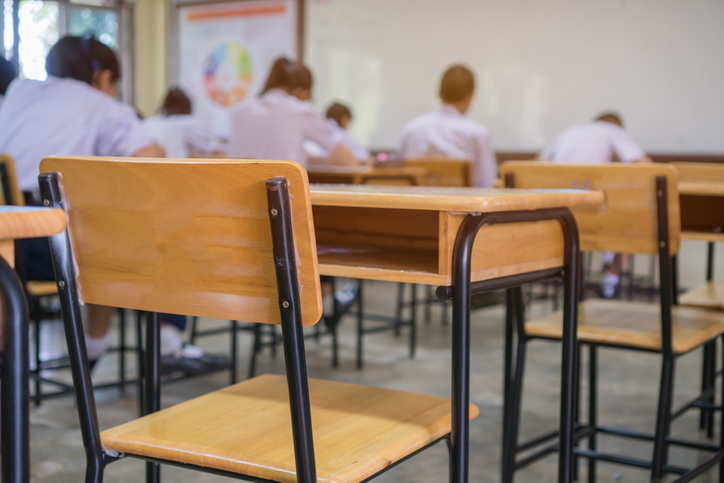No school will be allowed to function without all the measures put in place.


iStock
The Department of Basic Education has developed a standard operating procedure to contain and manage the coronavirus once schools re-open.
According to Basic Education Minister Angie Motshekga, the department was working with the department of health to implement the procedures, which also cover early childhood development facilities.
Motshekga said this during a media briefing on Thursday where she outlined the future of the academic year.
The procedures will guide administrators on steps needed to be taken to manage and prevent the spread of the virus.
They will also guide the department on how to respond and deal with cases in schools – and when a school or district office should close if anyone tests positive.
To adhere to the regulations of physical distancing, the department plans to put the following measures in place:
Motshekga said the infrastructure at schools had been of critical concern which the sector was cognisant about, adding plans would be in place to ensure infrastructure and furniture were conducive and safe for teaching and learning once schools re-open.
The department plans to sanitise all classrooms before the start of a school day, sanitise pupils before they enter classrooms and space out classes.
She added the sector would work with the department of transport to ensure buses transporting pupils to and from schools were sanitised and masks would be worn while en route.
Motshekga said the sector would be working on remedial measure challenges, which included shortages of classrooms and the provision of water.
Provincial education departments have identified 3,500 schools that have water supply challenges, with the highest number of them being in KwaZulu-Natal, the Eastern Cape, Limpopo and Mpumalanga.
Motshekga said all the conditions set would determine the phasing-in approach, adding no school would re-open if it had water supply challenges.
The sector has procured basic hygiene and sanitation packages, which include personal protective equipment based on risk exposure.
Orientation programme
The risk exposure includes basic principles of infection prevention and control, classrooms, toilets and food preparation areas in schools.
Motshekga said the sector had agreed cleaners would have to be increased in schools to ensure they were clean at all times.
The department will be conducting screenings for pupils and teachers, and anyone showing signs of high temperatures will be told to self-isolate and be tested.
An orientation and training programme will also be implemented to allow teachers, pupils, and non-teaching staff to familiarise themselves with all special arrangements put in place at schools as the country fights the pandemic.
No school will be allowed to function without all the measures being put in place.
For more news your way, download The Citizen’s app for iOS and Android.
Download our app